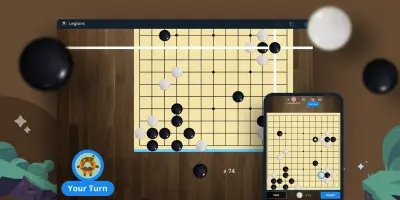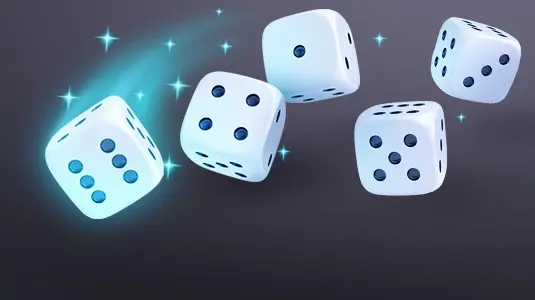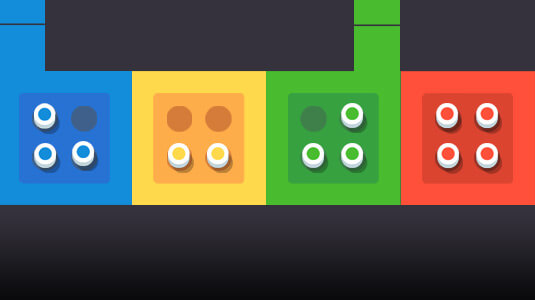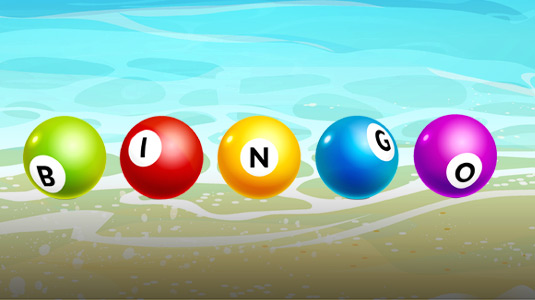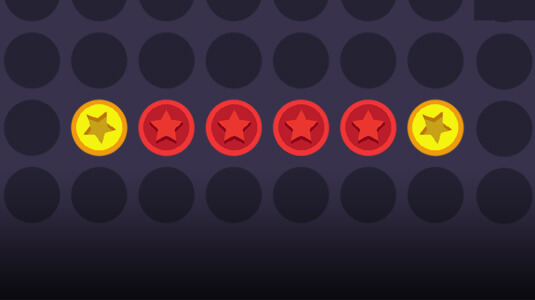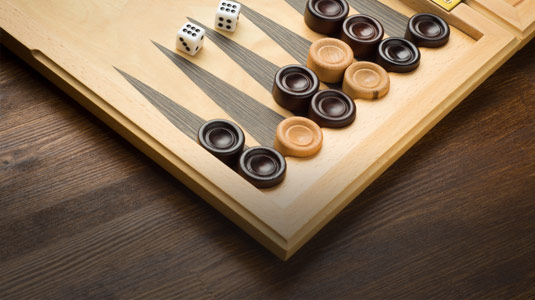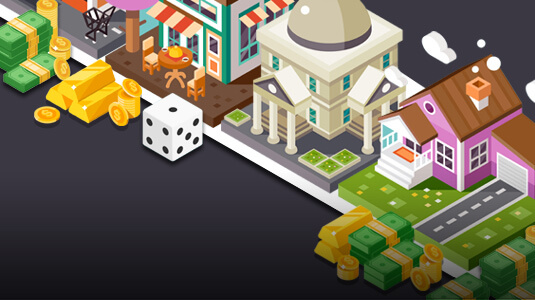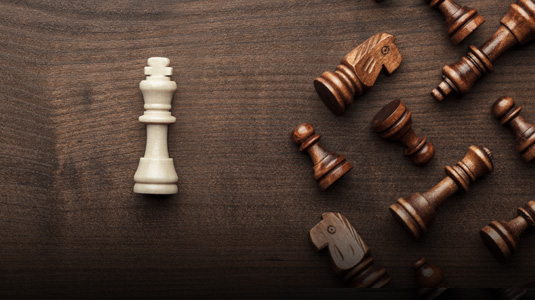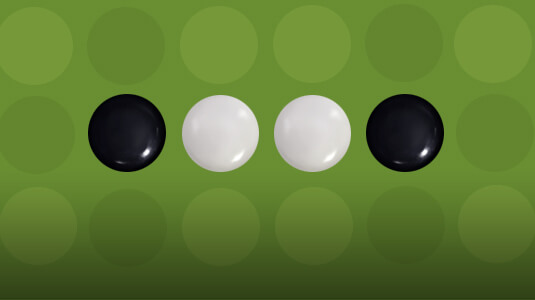 Go
GoBalance offense and defense, master the flow of influence, and turn the board into your masterpiece.
Play Go online with friends for free
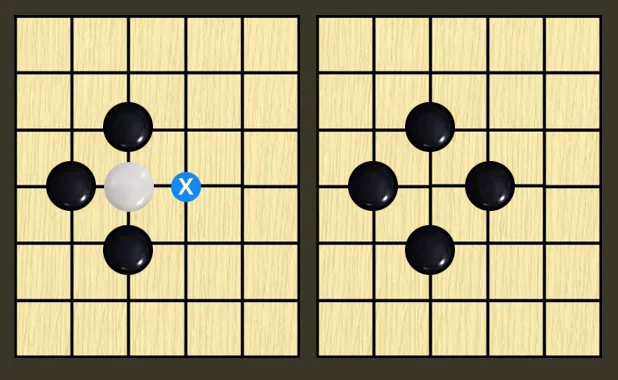
Placing Stones
Beginning with Black, each player in turn places a stone on an empty intersection, or "point." Once placed, a stone is never moved, although it is removed if the opponent captures it.
If any stones become completely surrounded by opposing pieces, they are captured and removed, as shown in the example of the White stone below.
A stone or group is completely surrounded when it is not adjacent--in any horizontal or vertical direction--to any empty intersections.
Liberty
An empty intersection adjacent to a stone or group is called a "liberty" of that group.
In the above example, White's stone has only one liberty--the point marked X. If Black plays there, White's stone is captured.
In the below example, a solidly connected group of four White stones has only one liberty (X). A Black play there captures the group.
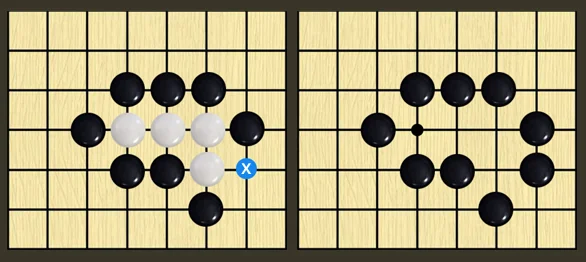
Captured stones, or "prisoners," are kept aside and counted at the end of the game.
A stone may not be placed on a point where it will be completely surrounded, unless it also causes an opponent's stone or group to be surrounded. If a move causes both players' stones or groups to become surrounded simultaneously, the stone or group belonging to the player who made the move survives and the other stone or group is captured.
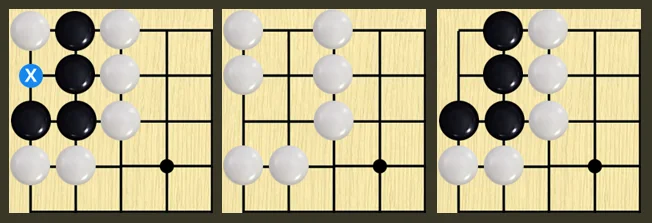
In the above position, both White and Black can make a capture by playing at the point marked X. If White makes the capture, the position will be as shown in the second diagram. If Black makes the capture, the position will look like the third diagram. (In this third diagram, a White play on the corner point will capture all five black stones, showing that Black's capture was a waste of time.)
More than one group may be captured as the result of a single play. In the example below, a White play at X will capture all three Black stones.
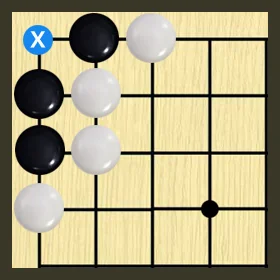
Can I play online?
Yes. Install the Plato app on iOS, Android, or macOS to play the full catalog with friends or matchmade opponents. You can also play Ocho online in your web browser — no install needed.
Can I play with friends?
Yep. Tap Create Private Game, then share the invite link or invite from your contacts. When they tap Accept, they're seated at your table.
Is it free?
Yes — free to play and ad-free. If you buy something, it's for looks (themes, profile flair), not power.
Is it fair?
Shuffles, deals, dice, and timers run on Plato servers, not your device. Everyone plays by the same rules and no one can peek at hidden information.
Is it safe?
You can block and report from profiles or chat. Public spaces use filters and human review. Some rooms use Chat Pass to deter spam, and privacy controls let you limit who sees you online.
Live vs. turn-based: what’s the difference?
Both are turn-taking; the difference is the clock. Live uses short timers for quick back-and-forth. Turn-based gives you longer — often up to 24 hours per move in games like Chess — so you can play at your pace.
